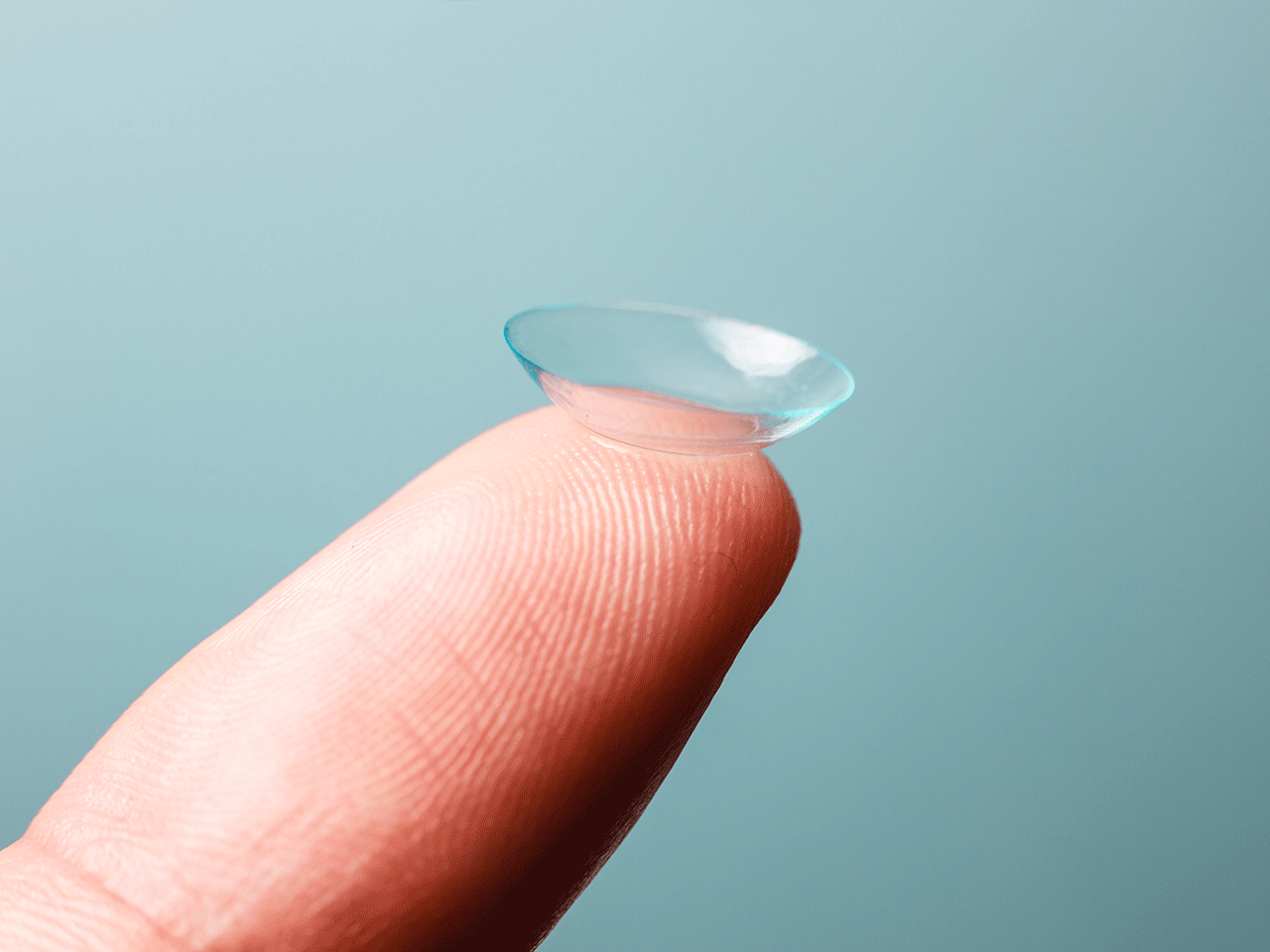Honest question: Have you ever been tempted to lick a contact lens because you needed to put it back in your eye and there was no contact solution in sight? Maybe your contact made a break for it, surprising you by suddenly popping out. Perhaps you removed it yourself because your eye couldn’t handle the dryness, but you need to insert it again to...you know...see.
If you’ve got it together enough to always have some contact solution on you, bravo. Otherwise, you might have the urge to lick and stick, as in, lick your lens, then stick back on your eyeball. What could possibly go wrong? Um, a lot, according to experts, who warn that you should absolutely not do this. Ever. Here’s why.
“[Licking contact lenses] is pretty terrible,” Jennifer Fogt, O.D., fellow of the American Academy of Optometry and an associate professor in the College of Optometry at The Ohio State University, tells SELF. Your whole goal with contact lenses is to keep them immaculate. This is why you’re supposed to rinse and store your contacts in sterile solution explicitly made for that purpose and otherwise follow the expert-approved guidelines on using your contacts to keep your eyes safe.
Sorry, but your spit is definitely not as clean as contact solution. “The mouth is a dark and moist place, which makes an ideal living environment for many different types of bacteria,” Vivian Shibayama, O.D., an optometrist and contact lens specialist with UCLA Health, tells SELF. It’s true that some of that bacteria is actually protective and meant to prevent the overgrowth of other bacteria that can harm your health, but that doesn’t mean your spit is sterile. Plus, your mouth also contains fungi and can carry viruses, too, even if you don’t necessarily feel sick.
Also, no offense, but if you’re licking your contacts before putting them in your eyes, chances are you probably haven’t washed your hands first, which is another problem. “You never know what type of bugs a person has on their hands,” Dr. Shibayama says.
Keratitis is a huge potential culprit here, Dr. Fogt says. Keratitis happens when bacteria, fungi, or parasites infect your cornea (the clear dome that covers the surface of your eye), according to the Mayo Clinic. People who wear contacts are usually more vulnerable to this than non-contact wearers because these tiny devices can house various pathogens. Licking your contacts increases those odds because you’re delivering microorganisms like bacteria directly to your lenses, Dr. Fogt says.
Keratitis can cause symptoms like eye pain, redness, blurry vision, sensitivity to light, excessive tearing, and discharge, according to the Mayo Clinic, and if it’s left untreated, it can lead to permanent vision damage. “You don’t want to mess with this,” Dr. Fogt says. As it turns out, one of the biggest ways to prevent keratitis is to use—and clean—your contact lenses according to their instructions, the Mayo Clinic says.
Then there’s the not-washing-your-hands-first part, which means you’re basically begging to get something like pink eye, Dr. Shibayama says. Pink eye (known in fancy med speak as conjunctivitis) is a bacterial, viral, or fungal inflammation or infection of your conjunctiva, the see-through membrane on the whites of your eyes and inside of your eyelids, according to the Centers for Disease Control and Prevention (CDC). Symptoms include redness, itchiness, a gritty feeling, discharge, discomfort when using contacts, and tearing.
Since bacterial and viral conjunctivitis are incredibly contagious, proper hand hygiene is a cornerstone of preventing their spread, according to the Mayo Clinic. Also, get this: the Mayo Clinic specifically links using contacts that haven’t been cleaned properly (using spit would fall into this category) with the bacterial form of this condition.
So, rule number 1: Always wash your hands if you’re going to touch your eyes, including before putting in or removing contacts. Rule number 2: Absolutely never put spit in your eyeballs, people! Grab your glasses instead of reusing those contacts, ask your coworkers if they have contact solution, or duck out and go buy some. Basically do whatever you need to when it comes to eye care, because it’s really not a game.
If your eyeballs are always dry, dry eye could be your issue. This is a condition that happens when your eyes can’t lubricate themselves adequately, according to the National Eye Institute. Usually, dry eye happens when the amount or quality of your tears can’t keep your eyes moist enough. Symptoms include the obvious dryness, along with tons of others like itchiness, scratchiness, stinging, burning, sensitivity to light, and more.
The fix for dry eye involves adding moisture into the equation, but only in a safe way, which means not with spit. If you think you have dry eye, make a doctor’s appointment to be sure, since a lot of other eye conditions have similar symptoms. In the meantime, use artificial tears (the simple kind that only aim to wet your eyes, not the kind that removes redness, which can just cause further irritation). Be sure to have your eye drops on you in case you need them. Your doctor may decide those drops are all you need, or they may discuss other dry eye treatment options with you.
The problem could also come down to the fit of your contacts, which should be just snug enough to stay put without causing discomfort. Although contacts may seem like one-size-fits-all devices, they’re not, which is why your doctor performs a complete eye exam before suggesting contacts that could be right for you. Check in with your doctor if your contacts are giving you trouble (and, in general, be sure to visit them every other year at a minimum so they can keep tabs on if your contacts need updating).
As you can see, you have some options here! But whatever you do, avoid mixing your spit and contact lenses. “Please don’t do this,” Dr. Fogt says.
Related:

